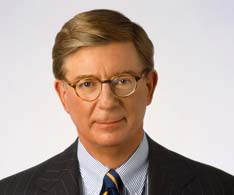
The shell fragment was still there when Han served as his nation's minister of foreign affairs (1993-1994) and as ambassador to the United States (2003-2005). He lives today with this metallic reminder of the fact that his nation lives in a dangerous neighborhood. His brother-in-law died when North Koreans killed 17 South Korean officials in a 1983 attempt to assassinate South Korea's president during a visit to Burma.
North Korea's opaque regime possesses nuclear, chemical and biological weapons, and conventional artillery and rockets that could devastate large portions of this metropolitan area of 25 million without any infantry or armor crossing the 38th parallel. But North Korea's dictator Kim Jong Un is less unpopular among South Koreans than is Japan's Prime Minister Shinzo Abe.
Japan's 35-year colonization of the Korean Peninsula ended with World War II. Seventy-four years later, South Korea, where the anniversary of Japan's 1945 surrender is a national holiday, is jeopardizing its and Northeast Asia's security in order to pursue war-era grievances concerning Japan's exploitation of forced labor. Japan says this issue, including expressions of remorse and restitution, was settled in 1965 -- many more years ago than the Japanese occupation lasted.
South Korea's President Moon Jae-in, whose party is facing a general election in 2020, has agitated this dispute, and a Korean court recently reopened it. Many Koreans say Japan's reparations have been insufficient and its apologies insincere.
In separate incidents this summer, two South Korean men burned themselves to death to protest Japan's government. Imports of Japanese beer are down 97%, Toyota and Honda sales are down 59% and 81% respectively. Some Koreans bitterly remember -- really -- that their marathoner had to run with a Japanese flag on his chest at the Berlin Olympics in 1936.
Japan, the world's third-largest economy, has responded by restricting sales of vital industrial chemicals to South Korea, the world's 12th largest. Most seriously, South Korea has withdrawn from an intelligence-sharing agreement with Japan as North Korea continues missile tests. This distracting spat, which sends a signal of unseriousness, is risky for a nation that thinks, with reason, that one cause of the Korean War was Secretary of State Dean Acheson declaring, six months before North Korea invaded, that South Korea was outside the U.S. "defensive perimeter."
South Korean polls reveal troubling age differences and a small middle ground. Young people are much less sanguine about their northern neighbor than Moon is. South Koreans in their 20s are the most hostile to warmer relations, or unification, with North Korea. Progressives are often middle-aged and some of them protest the statue of MacArthur in Incheon and are generally skeptical about U.S. policies and motives.
What Winston Churchill said of the Balkans -- that they produce more history than they can consume -- has been true of this peninsula for more than a century. Control of it was among the contested issues behind the First Sino-Japanese War (1894-95); and the Russo-Japanese War (1904-1905), which made Russia ripe for the 1917 Russian Revolution; and of course the Korean War.
Four U.S. presidents prior to the current one toiled to stop North Korea's nuclear weapons program. This continued until -- if you believe the current one -- he and Kim spent a few hours together in Singapore, "fell in love," and their conjugal relations produced this presidential tweet: "There is no longer a Nuclear Threat from North Korea." If, however, today's president is mistaken (there is precedent), so has been the durable belief that cajoling lubricated by bribery (food, energy, assistance building light-water reactors) would deflect North Korea from its decades-long nuclear project. The failure is writ large in the fact that North Korea has placed in its constitution the ambiguous description of itself as a "nuclear power."
Han Sung-joo is so given to softly spoken understatements that, he says, he hardly seems Korean: He says that his countrymen are "emotion-prone." So, attention must be paid when he says his country is more than "polarized," it is afflicted with "cleavages."
Americans, who are hyperbole-prone, have a seemingly endless series of high-decibel shouting matches over this or that supposedly "existential" matter. South Koreans actually live with such a threat, one that Moon minimizes, and that events might be maximizing.
Sign up for the daily JWR update. It's free. Just click here.
(COMMENT, BELOW)


 Contact The Editor
Contact The Editor
 Articles By This Author
Articles By This Author